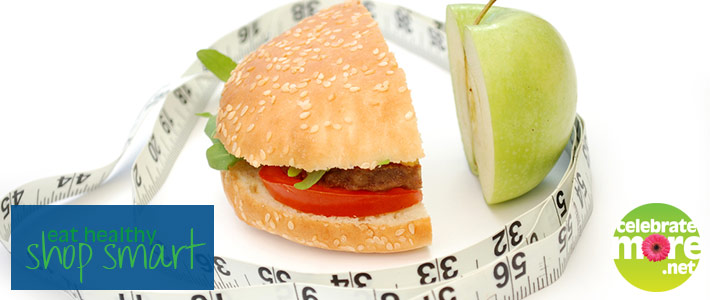
Emily
Take those New Year’s health resolutions by the horns! Whether you want to lose weight, lower your blood pressure, improve your blood sugars, or just want to eat and live healthier, I have 5 simple tips for you to help you meet your 2017 goals!
People often ask me what the best detox or diet is. If I am going to be honest, I’m not a fan of either. Usually I answer with something along the lines of eating more
nutritious foods and listening to the body. My answer never seems to get the reaction I hope for; don’t people want to be told they can eat REAL food instead of endless rice cakes and shakes that never seem to satisfy hunger?
With everything at our fingertips these days, it seems like a quick-fix is always within arm’s reach. Sorry to break it to you, but quick fixes when it comes to nutrition, especially weight control, never end up the way we hope. My theory is that we need to make lifestyle changes for eating habits to be sustainable. Small, SIMPLE, changes can have a huge influence on your health! Let’s talk about 5 of my favorite simple fixes that you can incorporate into this year.
- Forget calorie counting
- Focusing on only calories can lead to unhealthy habits, such as taking attention off of overall nutrition. If you are watching your weight, look for other ways to make sure your body is getting the nourishment it needs.
- My favorite way? Intuitive eating. Before, during, and after eating, check in with your body’s natural hunger signals.
- You can use a basic scale from 1 to 10, 1 being you haven’t eaten all day and 10 being you feel like you just ate a Thanksgiving dinner. The goal is to stay between a 3 and a 6 at all times.
- Are you eating because you are truly hungry, or are you board, stressed, sad, or happy? It does take practice, but the better you get at eating based on what your body is telling you, the less you will overeat and cave into those cravings.
- Don’t skip meals
- Skipping meals can promote overeating later in the day, not only resulting in weight gain, but also promoting imbalance in the body.
- When you eat at least 3 meals per day, you are more likely to be able to focus on your hunger cues, keeping your blood sugar balanced.
- Try your best to eat breakfast or a small snack in the morning, this will provide you with the energy you need to start your day.
- I hear often that people aren’t hungry in the morning and then I ask them when they eat at night. More often than not, they say they eat well into the late hours of the night, almost guaranteeing themselves that they won’t be hungry in the morning.
- Do your best to avoid eating close to your bedtime and hopefully it will be easier for you to eat breakfast in the morning.
- Don’t eat boring food
- People often associate healthy with boring salads, dressing on the side. I am here to proudly say that’s not the case!
- Do eat your fruits and veggies, but prepare them in a way that you enjoy! I’ll be real with you, personally I could care less about raw or steamed veggies. Throw them in the oven or on the grill with a drizzle of olive oil and that’s a game changer!
- Not a fan of whole wheat bread? Try white whole wheat, wheat bread that has all the nutrition with a white-bread taste.
- Find ways to make more nutritious choices that work for you. I promise you that eating healthy can taste good!
- Kick the sugar
- Hands down, sugar is one of the most problematic foods when it comes to weight gain, high blood sugars, and high triglyceride levels. Added sugars add calories to the diet without adding any substantial nutrition.
- Let’s discuss the difference between natural and added sugar.
- Naturally occurring sugars like lactose (milk sugar) and fructose (fruit sugar) are completely natural and shouldn’t be a concern for most people.
- Sucrose (honey, cane sugar, etc.) is used to add sweetness to foods like cakes, cookies, salad dressings, pasta sauces, and many other commonly consumed products.
- Look for products with little or no added sugars.
- As of now, this can be difficult, as added sugars aren’t separated from total sugar on the Nutrition Facts panel…yet. By July 2018, added sugar will be required on the panel.
- The American Heart Association recommends that men consume no more than 36 grams and women consume no more than 24 grams added sugar per day…about the amount in 1 can of pop.
- Rethink your drink
- Added sugar isn’t just in the food we eat, it’s also in the beverages we drink.
- Added sugars can be found in pop, sweetened teas, sports drinks, fruit drinks, some milks and waters, too!
- Look for unsweetened teas, milks, and waters like La Croix, Dasani Sparkling, or fruit-infused waters for tasty, yet low-sugar options.
Emily Parent, RD, LD
Click Here for more articles by Coborn’s Registered Dietitians









